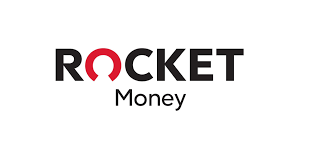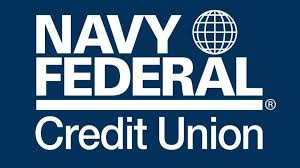Introduction to Modern Budgeting Tools
In 2025, keeping track of your money is more important and even easier. With rising costs, a growing number of digital subscriptions, and the shift toward cashless living, it’s easy to feel like your finances are slipping through your fingers. Thankfully, modern budgeting tools have evolved to keep up with our fast-paced lives, helping you stay in control of every dollar.
Gone are the days of balancing checkbooks or wrestling with clunky spreadsheets. Today’s expense tracking apps are smart, sleek, and powerful. They sync with your bank accounts in real time, alert you to unusual spending, and even help cancel subscriptions you’re no longer using. And with credit unions stepping up their tech game, many now offer built-in budgeting features that rival the biggest financial apps on the market.
Whether you’re budgeting solo, managing household expenses, or just want a better handle on your daily coffee runs, there’s a tool out there for you. In this guide, we’ll walk you through the best tools to track expenses in 2025, including some fantastic credit union apps that may surprise you.
Criteria for Choosing the Right Expense Tracker
There are so many budgeting apps and trackers out there, and picking the right one can get overwhelming.
First up, think about how tech-savvy you are. Do you love apps that do all the thinking for you, or do you prefer hands-on control? If a budgeting app feels like trying to fly a spaceship, you’re less likely to stick with it.
Next is syncing power. Can it connect to your bank, credit cards, and even your credit union account without hiccups? Tools like Mint and Monarch Money are rock stars at this, pulling your transactions automatically so you don’t have to manually punch in every coffee run.
Privacy and security should be considered too, especially in the age of data breaches. Look for apps that offer two-factor authentication and bank-level encryption. You wouldn’t hand your wallet to a stranger, so don’t settle for apps that treat your data like it’s no big deal.
What are your goals? Are you trying to stop living paycheck to paycheck? Save for a trip? Or maybe just figure out where your money keeps disappearing every month? Some tools, like YNAB, are all about goal-focused budgeting, while others give you a more casual overview.
Customization is another game-changer. Can you name your categories? Add notes? Tag that “oops” shopping spree? The more personalized it is, the more likely you’ll actually enjoy using it. Trust me, when you can track your “coffee with friends” spending separately, it hits different.
Here’s a little tip from a friend who used to be clueless about money: she started with a basic app that only showed her daily balances. Then she switched to PocketGuard and saw how much she could actually spend each day. Game changer. It’s like suddenly having glasses when you didn’t know your vision was blurry.
Ensure your expense tracker grows with you. Today you’re probably budgeting alone, but what if you move in with a partner? Apps like Zeta or Monarch let you budget as a team to avoid guessing games.
Finally, don’t be afraid to try a couple and see what sticks. Most of these apps offer free trials, so take them for a spin.
The perfect app won’t just track your money; it’ll talk to you, nudge you gently, and make budgeting feel less like a chore and more like a win.
Best Overall Expense Tracking Apps in 2025
Here are the top all-around apps for managing personal finances this year:
YNAB (You Need A Budget)

Managing your money can feel like trying to hold water in your hands. You think you’ve got it under control, and then another unexpected bill, a night out, or that impulse Amazon buy hits. That’s where YNAB (You Need A Budget) steps in like the budgeting buddy you didn’t know you needed.
YNAB teaches you to give every dollar a job before it even leaves your account. It’s not just another app; it’s more like a mindset shift in your pocket.
YNAB helps you allocate money for rent, groceries, savings, even your dog’s surprise vet visit when you’ve just been paid, Instead of randomly spending or hoping what’s left is enough.
One cool thing about YNAB is it doesn’t just track what you did spend, it helps you plan what you will spend. It’s forward-thinking. And it rewards you for being proactive, not just reactive.
Let’s say you’re saving for a trip to Italy next summer. In YNAB, you create a savings goal and start funding it a little at a time. Watching that goal fill up month after month? That’s motivation on steroids.
You may be wondering, Is it hard to set up?” Not at all. The interface is smooth, and it walks you through everything. Plus, the app syncs directly with your bank, credit union, or cards, so transactions pop in automatically.
According to YNAB’s own user research, new users save an average of $600 in their first two months. That’s real money staying in your pocket. One YNAB user shared how they managed to pay off $20,000 in debt in just a year using this system and making intentional choices, little by little.
The best part? YNAB doesn’t shame you for overspending. It just helps you adjust, learn, and keep moving forward. It’s like having a non-judgy financial coach cheering you on.
So, what do you want your money to do this month? Pay off debt? Grow your savings? Finally feel in control? YNAB is here to help you do exactly that: one budget, one decision at a time.
Give it a try. Who knows, you might end up budgeting your way into a vacation, an emergency fund, or simply sleeping better at night.
Rocket Money (formerly Truebill)

Ever looked at your bank statement and thought, “Wait, when did I sign up for that?” That’s exactly where Rocket Money steps in. It helps you clean up your digital mess like a savvy friend. If you’re tired of forgetting about that streaming trial you meant to cancel or that gym membership you swore you’d use, this app might be your new favorite tool.
Rocket Money digs through your expenses, highlights all your recurring charges, and politely taps you on the shoulder to say, “Hey, are you still using this?”
What makes Rocket Money stand out isn’t just its sleek interface; it’s how it gives you back control without making budgeting feel like a chore. The app automatically categorizes your spending, shows where your money’s going, and suggests areas where you can cut back. And here’s the cool part: it can even help negotiate bills for you. Yep, real people will actually try to lower your cable or internet bill. How awesome is that?.
How do you get started?
1. Download Rocket Money and securely connect your bank accounts.
2. Review your subscriptions: they’ll show up like a highlight reel of your monthly charges.
3. Decide what to keep or cut: the app even gives you a handy cancel button (no awkward phone calls!).
4. Set up smart budgets and alerts so you never miss a charge or go overboard again.
Now, let me ask you: what could you do with an extra $500 this year? Rocket Money isn’t about penny-pinching. It’s about reclaiming your spending power, one forgotten charge at a time. Give it a go and see just how much “invisible money” you’ve been leaking.
Mint (Intuit Mint)

Have you ever checked your bank account and thought, “Wait, where did my money go?” Mint helps you answer that without judgment. It pulls all your accounts, checking, savings, credit cards, even loans, into one tidy dashboard so you can see the big picture in seconds.
One of the best parts? You don’t need to be a financial wizard to use it. Mint automatically categorizes your spending (yep, it knows the difference between groceries and guilty-pleasure takeout), so you can track your habits without lifting a finger.
Let’s say you love those weekend Target runs. Mint will let you know if your “just essentials” habit is quietly eating into your rent money. It’s like having a money coach in your pocket, nudging you gently before things get out of hand.
Now, here’s where it gets even better; it tracks your credit score for free. That means you’re not just watching your spending; you’re keeping an eye on your future too. Want to buy a house or get a new car in a year or two? You’ll want to know that number.
People rave about the alerts too. You’ll get pinged if you’re close to going over budget or if a weird charge shows up on your account. That’s peace of mind wrapped in a notification.
Quick tip? Use Mint’s goal-setting feature. Whether it’s paying off debt, saving for a vacation, or building an emergency fund, Mint breaks it down into bite-sized steps so it actually feels doable. Like walking up a hill, not climbing a mountain.
One user said Mint helped them pay off $6,000 in credit card debt just by showing where their “leaks” were. Another realized they were spending over $150 a month on subscriptions they barely used. Sometimes just seeing the numbers laid out is enough to spark change.
If you’re tired of guessing where your money disappears to, give Mint a shot. It won’t judge you, won’t charge you, and might just become your new favorite app. Wouldn’t it be nice to feel on top of your finances for once?
Navy Federal Credit Union App

The Navy Federal Credit Union app isn’t just for checking balances; it’s a full-on budgeting assistant disguised as a banking tool. Ever wonder where your paycheck disappears by the second week of the month? This app helps you figure that out without judgment. It breaks down your spending into neat little categories, showing you exactly where your money’s going: groceries, gas, takeout, that online shopping spree you swore you’d avoid.
You can set financial goals right inside the app, whether it’s saving for a vacation, paying down debt, or finally tackling that emergency fund. It’s like having a cheerleader for your money, nudging you forward one deposit at a time.
And guess what? The app sends smart alerts; if you’re about to overspend or a payment is due, you get a gentle tap on the shoulder (digitally speaking). That’s the kind of heads-up that can save you late fees or worse, overdraft drama.
Don’t worry if you’re not a budgeting pro; this app is super user-friendly. You don’t need to be a spreadsheet wizard or financial guru. If you can scroll through Instagram, you can definitely use this app to get your money on track.
Thinking long-term? The app gives you monthly and yearly spending snapshots, helping you notice trends you might’ve missed. Are you making the most of your credit union membership? If you’re with Navy Federal and not using their app to budget, you’re leaving a ton of tools on the table. Your money should work for you and not the other way around. The Navy Federal app helps make that happen, one small win at a time.
PocketGuard: Your Everyday Budgeting Sidekick

PocketGuard is a “spending GPS” that tells you exactly how much money you can safely spend without throwing your budget off track. It literally calculates your “In My Pocket” amount after it accounts for bills, goals, and savings.
Ever look at your bank balance and wonder, “Can I actually afford this?” PocketGuard gives you a straight-up answer. It pulls in all your account data, and, within minutes, you’ve got a crystal-clear snapshot of your finances. It is basically budgeting without the spreadsheets.
You don’t have to manually log every coffee or grocery run. Once you connect your checking, savings, and credit cards, PocketGuard does the legwork. The app nudges you gently if you’re about to overspend, kind of like a friend whispering, “Maybe not today.” No guilt, just smarter choices.
It is also very visual; charts, graphs, and colorful indicators make it super easy to read. You don’t need to be a finance wizard to understand what’s going on. If you’ve got financial goals, like a vacation or paying off debt? PocketGuard helps you set targets and then carves out a chunk of your money each month to help you hit them.
A study from the National Foundation for Credit Counseling found that people who track their expenses are twice as likely to feel financially confident. If you’ve ever felt like your money disappears before the weekend rolls around, PocketGuard might be the game-changer you need. It won’t do the hard saving for you, but it’ll make sure you don’t get lost on the way.
Alliant Credit Union Mobile App

You ever wish your banking app felt more like a money coach and less like a calculator? That’s exactly what the Alliant Credit Union Mobile App brings to the table. Imagine opening your app and instantly seeing how much you’ve saved toward that vacation fund or how close you are to paying off your student loan. Alliant’s app breaks it down in a way that actually makes sense. You’re not scrolling through endless menus; you’re getting real insights in real time.
The best part is that you don’t need to be a finance wizard to use it. The app uses simple visuals, goal trackers, and smart notifications to help you make small changes that add up big time. Forgot to budget for your streaming services? The app will flag recurring charges so you’re not caught off guard.
Think about this: how often do you review your spending at the end of the month and think, “Where did it all go?” With Alliant, you can spot those spending leaks early. It nudges you, kindly but firmly, so you can stay on track without feeling overwhelmed.
You don’t have to be worried about safety; you’re covered. The app comes loaded with biometric login, two-factor authentication, and bank-level encryption. So while you’re getting smarter with your money, your data stays safe and sound.
Here’s a simple way to start:
1. Download the app and link your accounts.
2. Set one financial goal—like saving $100 this month or spending $50 less on takeout.
3. Turn on notifications for spending alerts and savings progress.
And don’t stress about getting it perfect. It’s all about progress, not perfection. With the Alliant Credit Union app on your side, you’re already a step ahead. Ready to give your money some direction?
Conclusion: Final Thoughts on the Best Expense Tracking Tools
You don’t need to be a financial expert to take control of your money. All you really need is the right tool and a little curiosity about where your cash is going. The good news? In 2025, there are more ways than ever to make that happen, without spreadsheets or stress.
Whether you’re into goal-based apps like YNAB, love the simplicity of PocketGuard, or stick with your trusted credit union app, there’s something built just for you. Think of these tools like GPS for your finances, guiding you, rerouting when needed, and always keeping you on track. Have you ever looked back at your bank statement and thought, “Wait… I spent how much at coffee shops?” Yep. We’ve all been there.
The key is to start small. Pick one app that feels right, link your accounts, and set a single goal. Maybe it’s cutting back on weekend splurges or saving for that dream trip. Little wins build momentum, and before you know it, budgeting won’t feel like a chore but like an empowerment.
Now, if you’re serious about not just tracking your expenses but transforming your financial future, there’s something else you should check out. God’s Treasury Cooperative is a game-changer for anyone ready to go beyond budgeting. They don’t just help you save; they equip you with smart business ideas, custom savings and investment plans, and a business growth roadmap you can actually follow. It’s like turning your budget into a blueprint for wealth.
Why not give your goals some wings? Explore what God’s Treasury Cooperative has in store and take the first bold step toward not just tracking your money but multiplying it.

